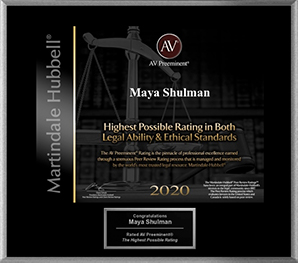FOR A VERY LONG TIME, THERE WAS NO INTERNATIONAL AGREEMENT OR UNIVERSALLY ACCEPTED LIST OF RULES AND PROTOCOLS TO DEAL WITH INTERNATIONAL LAW BETWEEN MULTIPLE COUNTRIES CONCERNING DOCUMENT SERVICING RELATED TO COMMERCIAL AND CIVIL JUDICIAL ISSUES. THERE WAS A NEED OF SUCH AN INTERNATIONAL CONVENTION TO PREVENT COMPLICATION OF SERVICE PROCESSES.
What Is The Hague Service Convention?
The Hague Service Convention is the commonly used name for the Convention on the Service Abroad of Judicial and Extrajudicial Documents in Civil or Commercial Matters. It was adopted on 15 November 1965 at The Hague in the Netherlands. It is a multilateral treaty that was initially adopted by some of the Hague Conference on Private International Law members, but has been accepted by a number of nonmember states in the following years.
Why Was The Hague Service Convention Created?
The Hague Service Convention came into existence out of the need for uniform international norms on document servicing. Before the Convention was created, diplomatic and other international channels were used for servicing, although the processes and rules were not consistent over time and among states. States that have not accepted the Convention still mainly use diplomatic channels for servicing documents. The Convention sought to replace diplomatic and consular channels for document servicing and use set processes and rules for such requirements instead.
Even for the states that have accepted the Convention, the rules are not mandatory and can be superseded by other agreements among those states. This is the case with a number of states that are part of the European Union and have agreements that take precedence over the Convention for document servicing of commercial and civil matters. Some states in South America also have agreements that take precedence over the Convention rules for international document servicing. However, for most other states, the Convention is the only set of rules that exists for such servicing.
Modes Of Servicing Under The Hague Service Convention
Documents relating to commercial and civil matters of judicial or extrajudicial nature can be serviced using the rules and norms stated in the Hague Service Convention.
There are multiple modes of servicing documents under the Convention:
Central authority: This is the most accepted mode of servicing, although it can take weeks or even months for the processing to be completed by the authorities. However, this mode of servicing is completely free of cost.
Self-service: This refers to hand delivery of the judicial or extrajudicial documents to the concerned parties. The delivery is usually carried out by legal personnel such as a bailiff or an attorney. Documents may also be delivered using postal and courier services in this mode of servicing.
Service by mail: This mode is available only in some states that have accepted certain articles in the Convention. This mode can be used only if the judicial and legal authorities in the state receiving the service accept this mode of service. In some states, there is ambiguity concerning the use of this mode of service and should be used with caution.
How Many Members Does The Hague Service Convention Have?
As of 2017, the Convention has 73 members, which includes 61 member states from the Hague Conference on Private International Law and 12 non-member states. Most states in Europe and the Americas are members, as are many Asian states. Most African states, barring a few, are not yet members of the Convention; there are a few African states that are considering joining the Convention and have been discussing the details of the Convention.
Armenia, Columbia, and Moldova were some of the last countries to join the Convention in 2013, followed by Vietnam and Kazakhstan in 2016. Tunisia is expected to become a member state in early 2018.
Shulman Family Law Group
Maya Shulman, Esq.
SFLG







